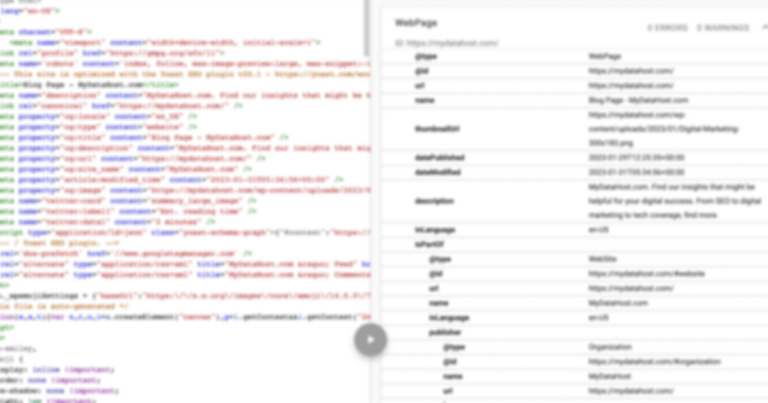As a local business owner, having a strong online presence is crucial to attracting new customers and growing your business. One key aspect of this is having a website that is optimized for search engines like Google, which can help drive more traffic to your site and improve your visibility in local search results. In this article, we’ll share 10 tips for optimizing your local business website for SEO.
1. Start with keyword research
Before you start optimizing your website, it’s important to understand what keywords and phrases your potential customers are searching for online. This will help you create content that is relevant and valuable to your target audience, and it will also help you determine the best keywords to target for your SEO efforts.
There are a number of free tools you can use to research keywords, including Google’s Keyword Planner, Moz’s Keyword Explorer, and SEMrush. Simply enter a few keywords related to your business and the tool will generate a list of related keywords and phrases, along with data on search volume, competition, and other important metrics.
2. Optimize your website structure
Once you have a list of keywords, it’s time to start optimizing your website structure. This includes making sure your website is easy to navigate and that all of the important information is easily accessible to both users and search engines.
Some of the key elements to consider when optimizing your website structure include:
- Using clear and descriptive page titles and meta descriptions
- Organizing your content into categories and subcategories
- Creating a sitemap and submitting it to search engines
- Adding a clear and easy-to-use navigation menu
3. Create high-quality content
One of the most important factors in SEO is creating high-quality content that provides value to your target audience. This includes not only writing well-researched blog posts and articles, but also creating pages that provide information about your products and services, your company history, and anything else that potential customers may want to know.
When creating content, be sure to include your target keywords in the text, but don’t overdo it. Search engines are looking for natural and relevant content, so it’s important to strike a balance between keyword optimization and creating content that is useful and engaging for your audience.
4. Optimize your images
Images can be a powerful tool for attracting visitors to your site, but they can also slow down your page load times and make it difficult for search engines to understand what your website is about.
To optimize your images, be sure to:
- Use descriptive file names and alt tags
- Compress your images to reduce file size
- Use images that are relevant to your content
5. Build high-quality backlinks
Backlinks are a key factor in determining your website’s ranking in search engine results pages (SERPs). When other websites link to your site, it signals to search engines that your site is relevant and valuable, which can help improve your visibility in search results.
To build high-quality backlinks, focus on creating valuable and informative content that other websites will want to link to. You can also reach out to other website owners in your niche and ask for a link, or you can participate in online communities and forums related to your business.
6. Claim your Google My Business listing
Google My Business is a free listing service from Google that allows you to manage your business information and appear in Google Maps and Google search results. To claim your listing, simply go to the Google My Business website and follow the steps to verify your business.
Once your listing is claimed, be sure to complete all of the information, including your business name, address, phone number, website URL, hours of operation, and any other relevant information. You can also add photos and reviews to help showcase your business and attract potential customers.
7. Get your business listed in local directories
In addition to claiming your Google My Business listing, you should also get listed in other local directories and online business listings. This will help increase your visibility in local search results and drive more traffic to your website.
Some of the most popular local directories include Yelp, TripAdvisor, and Yellow Pages, but there are also many other industry-specific directories that you can use to reach your target audience.
8. Use schema markup
Schema markup is a type of code that you can add to your website to help search engines understand the information on your site. This can include information about your business, products and services, and anything else that you want to highlight in search results.
There are many different types of schema markup, so be sure to research the options that are relevant to your business and consider implementing them on your site.
9. Optimize for mobile devices
In today’s mobile-first world, it’s important to make sure your website is optimized for mobile devices. This means that your site should load quickly and be easy to navigate on any device, including smartphones and tablets.
To optimize your website for mobile devices, consider using a responsive design that automatically adjusts to different screen sizes, or consider creating a separate mobile site if your website is not easily viewable on mobile devices.
10. Monitor and adjust your SEO efforts
Finally, it’s important to regularly monitor your SEO efforts and make adjustments as needed. This includes tracking your website traffic and search engine rankings, and making changes to your content and site structure as needed to improve your visibility in search results.
By following these 10 tips, you can optimize your local business website for SEO and improve your visibility in local search results. With the right strategy and a focus on creating valuable and relevant content, you can attract new customers, grow your business, and succeed online.
Takeaway on SEO for local business
In conclusion, optimizing your local business website for SEO can help you reach a wider audience and drive more traffic to your site. By focusing on key elements such as keyword research, on-page optimization, and building high-quality backlinks, you can improve your search engine rankings and reach your target audience more effectively.
Remember to always prioritize user experience, and make sure your site is easy to navigate and provides valuable information to your visitors. Additionally, stay up to date with changes in the search engine algorithms, and monitor your SEO efforts regularly to make adjustments as needed.
Investing time and resources into your local SEO strategy can have a big impact on the success of your business. With the right approach, you can gain a competitive advantage, reach new customers, and grow your business in a sustainable way.










